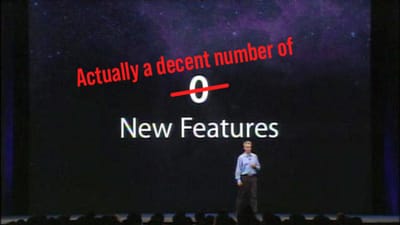Your Unfair Advantage, and Elevating Above “Good Enough”
We all have things we’re good and bad at in our lives. There isn’t a soul on this planet who is just great at everything, so don’t think you, yeah you, are a snowflake here 😛
We’re getting towards the end of the year and that means performance reviews for a lot of people. The odds are that part of that review will be for you to identify parts of your performance that are not as good as they could be and how you’re going to work to make them better in the new year/quarter/whatever.
This is pretty standard fare, and you’re likely to think of the things you don’t do quite as well as you could and you’ll come up with a plan to do them better. You boss with sign off and you’ll be on your merry way.
But here’s my suggestion, and it’s one I got from my boss this year: instead of trying to make your middling qualities good, try to make your good qualities great, and your great qualities unbelievable.
I think that this is great advice, because while being good enough at all aspects of your job is good, you should strive to be outstanding in ways only you are able to achieve. You should strive to stand out.
For example, I have two general unfair advantages:
- I work incredibly hard, and incredibly fast.
- I am not afraid to go ahead and just do something.
Point 1 is not unique, and frankly if left unchecked it could lead to burnout, but in general, I’m willing to work harder and take things more seriously than others.
Combining that with point 2, though, is what helps me stand out. I don’t care about creating a “process” before doing something for the first time, nor do I have a lot of patience for, “we’ve never done this before” thinking. I like to try things out all the time, and some of those things will stick. At the very least, each failed attempt at a good idea lets me iterate the next time and get better quickly.
This is not a new idea, I’ll admit, and anyone who has read The Lean Startup is well aware of this concept, but I don’t think everyone in the workplace does this at a personal level.
As an example that’ I can actually share here, consider my YouTube channel, A Better Computer. I started off by doing a thing I was already good at: recording and narrating software tutorials. Go back to my early videos and that’s exactly what I’m doing, just with a little extra style that you typically get from a screen share:
Fast forward a month and I decided I wanted to be on screen for parts of my videos, so I threw my iPhone on a tripod, hit record, and went for it.
The audio was terrible, and the video was rough. My composition was boring and the plain background was a bad choice.
So I iterated.
While I still have a long way to go, my recent video is way better on all fronts.
I could have waited to make a video until I had a long term plan for the channel. I could have waited until I had a “YouTube set” in my office that looked professional. I could have waited to buy a 4K professional camera that made me look as crisp as the other big names on YouTube. I could have made those earlier videos but never shared them because they weren’t perfect.
But I went for it even if things weren’t perfect (and parts were just bad), and it got me feedback, it got me experience, and it helped me sort out my process for making videos as I went. As of writing this post I have published 38 videos and people have spent thousands of hours watching them. I did this by working hard, working fast, and trying a bunch of different things to figure out what works.
Again, this is an example from my public projects, but there are numerous examples of me doing similar things at my day job.
As I get to the end of the year, I’m looking at how I can lean into those strengths of hard work, speed, and “just going for it” to elevate myself in the future. I should keep an eye on the things I’m not great at, but my real focus should be on finding ways to stand out as much as possible.


